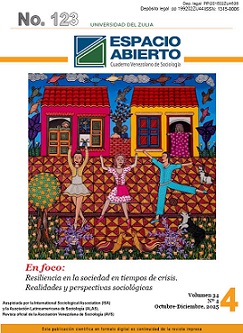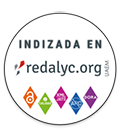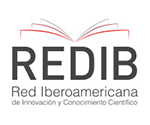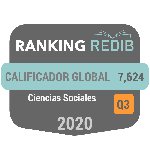Transferencia del conocimiento tradicional en el sector del turismo gastronómico del Pacífico afrocolombiano en la ciudad de Santiago de Cali
Abstract
El artículo buscó comprender el proceso de transferencia de conocimientos gastronómicos tradicionales entre portadoras de tradición y aprendices de la región del Pacífico afrocolombiano en Cali - Colombia, tomando como base teórica las formas de conversión de conocimiento del modelo SECI y las estrategias de personalización y codificación de la transferencia de conocimiento. La metodología fue cualitativa, bajo el paradigma interpretativo y el método etnometodológico. El análisis de datos es de tipo temático y se apoyó con la herramienta Atlas Ti. Como resultado se encuentra que la oralidad y la personalización, son importantes en el proceso de transferencia de la tradición gastronómica afrocolombiana del Pacífico, destacando la importancia de la afectividad y los lazos familiares en el proceso de aprendizaje culinario. Entre los retos se encuentran las normas contradictorias con la normativa sanitaria moderna y la falta de interés de las generaciones más jóvenes.
Downloads
References
AKBAR, Y. (2018). “Knowledge Management System pada Biro Administrasi Akademik Akademi Pariwista Nusantara”. STRING (Satuan Tulisan Ris. dan Inov. Teknol). Volumen 3, no. 1, p. 87.
ALMENARA, J.; CEJUDO, M. C. (2013). “La aplicación del juicio de experto como técnica de evaluación de las tecnologías de la información y comunicación (TIC)”. Revista Eduweb. Volumen 7, no 2, p. 11-22.
ALMANSOURI, M., VERKERK, R., FOGLIANO, V., & LUNING, P. A. (2022). “The heritage food concept and its authenticity risk factors-Validation by culinary professionals”. International Journal of Gastronomy and Food Science. Volumen 28 n. 100523
AMAYA, M. (2016). Aportes de la tradición oral afrocolombiana a la reconstrucción del lenguaje, la memoria y la identidad en el aula. Tesis. (Pregrado en Educación básica con énfasis en Humanidades) – Facultad de educación, Universidad de Antioquia, Medellín.
AMON, D., GUARESCHI, P. A., & MALDAVSKY, D. (2005). “La psicología social de la comida: Una aproximación teórica y metodológica a la comida y las prácticas de la alimentación como secuencias narrativas”. Subjetividad y Procesos Cognitivos. Volumen 7, 45-71.
ANGARITA OSSA, J. J., ESCOBAR RIVERA, J. C., CASTELLANOS PEÑALOSA, R. E. ., & AGUIRRE SANTAFÉ, L. A. (2022). “Arraigo y desarraigo de las prácticas alimentarias en la población afrodescendiente de Santiago de Cali, Colombia”. Revista Interamericana De Investigación Educación Y Pedagogía RIIEP. Volumen 15, n.2.
ATTARD, C., ELLIOT, M.L., GRECH, P., & MCCORMACK, B. (2022). “Adopting the concept of ‘Ba’ and the ‘SECI’ Model in Developing Person-Centered Practices in Child and Adolescent Mental Health Services”. Frontiers in Rehabilitation Sciences. Volumen 2, n. 744146.
AVDIMIOTIS, S.; KILIPIRIS, F. Y TRAGOUDA, A. (2022). “SECI model questionnaire validation for hospitality establishments”. International Journal of Technology Marketing. Volumen 16, no 4, p. 370-385.
BEZERRA, M. (2020). “The subjectivation effects produced by meal sharing experience in therapeutic groups in CPPL”. Psicologia Clínica. Volumen 32, no 1, p. 59-78.
BERBEL-PINEDA, J.; PALACIOS-FLORENCIO, B., RAMÍREZ-HURTADO, J. Y SANTOS-ROLDÁN, L. (2019) “Gastronomic experience as a factor of motivation in the tourist movements”, International Journal of Gastronomy and Food Science. Volumen 18, n. 100171
BOLISANI, E.; PADOVA, A. & SCARSO, E. (2020). “The continuous recombination of codification and personalisation KM strategies: a retrospective study”. Electronic Journal of Knowledge Management. Volumen 18, no 2, p. pp185-195.
BUENAHORA, G. (2018). “Experiencias Silenciadas: Breves Apuntes Sobre la Cocina Afromexicana”. Diario De Campo. N.º 4 (abril):74-85.
BRAUN, V.; CLARKE, V. (2006). “Using thematic analysis in psychology”. Qualitative research in psychology. Volumen 3, no 2, p. 77-101.
COLORADO, Z. (2023). Diálogos de identidad cultural y aportes de la educación popular con los estudiantes del grado segundo de la Institución educativa La Primavera – Villa rica Cauca. Tesis. (Maestría en educación popular) – Facultad de ciencias exactas y de educación , Universidad del Cauca, Cauca.
DE ROOIJ, A.; ATEF, A. & FABER, M. (2024). “A wandering mind is not always a creative mind: How thought dynamics explain the relationship between mind wandering and creativity”. The Journal of Creative Behavior. Volumen 58, no 1, p. 151-170.
DIXON, N. (2001). El conocimiento común: cómo prosperan las compañías que comparten lo que saben. Oxford: University Press.
ESCUDERO, C. (2020). “El análisis temático como herramienta de investigación en el área de la Comunicación Social: contribuciones y limitaciones”. La Trama De La Comunicación. Volumen 24 (2), 089–100.
ESCOBAR-PÉREZ, J. Y CUERVO-MARTÍNEZ, Á. (2008). “Validez de contenido y juicio de expertos: una aproximación a su utilización”. Avances en medición. Volumen 6, no 1, p. 27-36.
FLORES TORRES, C.L., OLVERA-VARGAS, L.A., SÁNCHEZ GÓMEZ, J. AND CONTRERAS-MEDINA, D.I. (2021), «Discovering innovation opportunities based on SECI model: reconfiguring knowledge dynamics of the agricultural artisan production of agave-mezcal, using emerging technologies», Journal of Knowledge Management. Volumen 25 No. 2, pp. 336-359.
GAURAV S. (2023). “Theoretical Review on Strengthening Tourism Supply Chain Infrastructure using Knowledge Management’s and SECI Model with reference to Jammu based Tourism”. International Journal For Multidisciplinary. Volumen 5, no. 4.
GARFINKEL, H. (2018). Estudios de etnometodología. Barcelona: Anthropos Editorial.
GUEST, G.; BUNCE, A. & JOHNSON, L. (2006) “How many interviews are enough? An experiment with data saturation and variability”. Field methods. Volumen 18, no 1, p. 59-82.
GUTIÉRREZ, E. (2019). “Ver, preguntar y cocinar… y cocinar cantando. La cocina tradicional del Pacífico colombiano: un patrimonio cultural en riesgo”. Boletín de Antropología. Volumen 34, N.º 58, pp. 185-198.
GREINER, M.; BÖHMANN, T. & KRCMAR, H. (2007). “A strategy for knowledge management”. Journal of knowledge management. Volumen 11, no 6, p. 3-15.
HANSEN, M; NOHRIA, N & TIERNEY, T. (2005). What’s your strategy for managing knowledge”. Knowledge management: critical perspectives on business and management. Volumen 77(2), 322.
HENRIQUES, C. Y CUSTÓDIO, M. (2010). “Turismo e Gastronomia: a valorização do património gastronómico na região do Algarve”. Tourism & Management Studies, no 6, p. 69-81.
HERSCHEL, R.T. Y NEMATI, H.R. (2000) “Chief Knowledge Officer: Critical Success Factors for Knowledge Management”. Information Strategy: The Executive’s Journal. Volumen 16, no. 4, p. 37-45.
HISLOP, D.; BOSUA, R. Y HELMS, R. (2018) Knowledge Management in Organizations: A critical introduction. Oxford: University Press.
HOFFMAN, F.; KEMPF, B. Y LIM, A. (2018). “Knowledge Management And Transfer: The Role Of Cuisine In Transferring Cultural Knowledge”. Issues in Information Systems. Volumen 19, no 1.
HURTADO-GARCÉS, R. (2020) “Quítate de mí escalera, no me hagás oscuridad”: imágenes de lo “negro” en la antropología colombiana 1930-1970”. Revista CS. N. 30, p. 141-172.
JOIA, L. Y LEMOS, B. (2010) “Relevant factors for tacit knowledge transfer within organisations”. Journal of Knowledge Management. Volumen 14, no. 3, p. 410-427.
JOHAN, R., GORAN, R., DRAGONETTI NICOLA, C., & LEIF, E. (2001). Capital Intelectual. El Valor Intangible de la Empresa. Barcelona: Editorial Paidós.
KENETT, Y. (2019). “What can quantitative measures of semantic distance tell us about creativity?”. Current Opinion in Behavioral Sciences. Volumen 27, p. 11-16.
LAM, A. (2000). “Tacit knowledge, organizational learning and societal institutions: An integrated framework”. Organization studies. Volumen 21, no 3, p. 487-513.
LEAL, M. P. (2013). Turismo gastronómico y desarrollo local en Cataluña: El abastecimiento y comercialización de los productos alimenticios. Tesis. (Doctorado en geografía) – Facultad de geografía e historia, Universidad de Barcelona, Barcelona.
LIYANAGE, C., ELHAG, T., BALLAL, T. AND LI, Q. (2009), «Knowledge communication and translation – a knowledge transfer model», Journal of Knowledge Management. Volumen 13 No. 3, pp. 118-131.
MARSHALL, B., CARDON, P., PODDAR, A., & FONTENOT, R. (2013). “Does Sample Size Matter in Qualitative Research?: A Review of Qualitative Interviews in is Research”. Journal of Computer Information Systems. Volumen 54(1), 11–22.
MARTÍNEZ-SALGADO, C. (2012). “El muestreo en investigación cualitativa: principios básicos y algunas controversias”. Ciência & Saúde Coletiva. Volumen 17, no. 3, p. 613-619.
MOHAJAN, H. K. (2018). “Qualitative Research Methodology In Social Sciences And Related Subjects”. Journal of Economic Development, Environment and People. Volumen 7, no. 1, p. 23.
MORA, D.; SOLANO-SÁNCHEZ, M.; LÓPEZ-GUZMÁN, T. Y MORAL-CUADRA, S. (2021) “Gastronomic experiences as a key element in the development of a tourist destination”. International Journal of Gastronomy and Food Science. Volume 25.
NATEK, S., & ZWILLING, M. (2016). “Knowledge management systems support SECI model of knowledge-creating process”. Managing Innovation and Diversity in Knowledge Society Through Turbulent Time pp. 1123-1131.
NIETO J. (2022). La culinaria como artefacto cultural. Tesis (Pregrado en psicología) – Facultad de psicología, Universidad del Valle, Colombia.
NONAKA, I. & TAKEUCHI, H. (1995). The knowledge-creating company. Oxford: University Press.
NONAKA, I. & TAKEUCHI, H. (2007). “The knowledge-creating company”. Harvard business review. Volumen 85, no 7/8, p. 162.
NONAKA, I; TOYAMA, R Y NAGATA, A. (2000). “A firm as a knowledge-creating entity: a new perspective on the theory of the firm”. Industrial and corporate change. Volumen 9, no. 1, p. 1-20.
NOR, N. M., SHARIF, M. S. M., ZAHARI, M. S. M., SALLEH, H. M., ISHA, N., & MUHAMMAD, R. (2012). “The transmission modes of Malay traditional food knowledge within generations”. Procedia-Social and Behavioral Sciences. Volumen 50, 79-88.
NOVOA, R.; QUINTERO, C. A. (2022). “Metodología de recuperación de símbolos emberá-chamí a partir de modelos de gestión de conocimiento”. Latin American Research Review. Volumen 57, no 3, p. 662-678.
NURIADI, N., SRIWI, A., WIDJAYA, I., & MAHSAR, L. (2023). “Pengembangan potensi wisata bahari di dusun meang desa buwun mas kecamatan sekotong kabupaten lombok barat”. Journal Of Responsible Tourism. Volumen 2(3), 497-508.
OBERSCHALL, A. AND SEIDMAN M. (2005). “Food Coercion in Revolution and Civil War: Who Wins and How They Do It”. Comparative Studies in Society and History. Volumen 47, no. 2: 372–402.
OVERCASH, F., RITTER, A., MANN, T., MYKEREZI, E., REDDEN, J., RENDAHL, A., VICKERS, Z., & REICKS, M. (2018). “Impacts of a Vegetable Cooking Skills Program Among Low-Income Parents and Children”. Journal of nutrition education and behavior. Volumen 50(8), 795–802.
PALACIOS, C. A. (2020). Conocimiento tradicional, cocina y mujer en Buenaventura. Cali: Editorial Universidad Santiago de Cali.
PATTON, M. Q. (2002). Qualitative research & evaluation methods. 3a ed. Sage.
PORTOCARRERO, M. J. & BRUCKNER, I. (2022). Tradición oral afrocolombiana como reflejo de subalternidad. Tesis (Pregrado en comunicación social)- Facultad de comunicación y lenguaje, Universidad Javeriana, Colombia.
POLANYI, M. (1967). The tacit dimension. Anchor Books Print
QUEZADA, B. Y PALACIOS F. (2006). “AMANSÉ el afro es oral”. Departamento de publicaciones: Congregación mariana. pp 1-81.
RAMÍREZ, S.A., & GIRÓN, V.M. (2014). “Preservación y transferencia del conocimiento en los talleres tradicionales. INCEPTUM. Revista de Investigación en Ciencias de la Administración. Volumen 8, Nº. 14, págs. 298-313.
RICHARDS, G. (2017). “El consumo de turismo en la posmodernidad o en la modernidad líquida”. Oikonomics. Volumen 5, no 7, pp. 5-11.
SANCHEZ, E. (2020). “Recetas tradicionales con sabor colombiano”. Boletín cultural y bibliográfico. Volumen 54, no 98, p. 72-100.
SARASVATHY, S. D. (2001). “Causation and effectuation: Toward a theoretical shift from economic inevitability to entrepreneurial contingency”. Academy of management Review, vol. 26, no 2, p. 243-263.
SEHGAL, G. (2023). “Theoretical Review on Strengthening Tourism Supply Chain Infrastructure using Knowledge Management’s and SECI Model with reference to Jammu based Tourism”. International Journal For Multidisciplinary Research. Volumen 5(4), 5549.
SULEIMAN, M. S. M., SHARIF, M. S. M., FUZA, Z. I. M., & AZWAR, H. (2023). “Determinants of traditional food sustainability: Nasi Ambeng practices in Malaysia”. Environment-Behaviour Proceedings Journal. Volumen 8(25), 143-155.
SUPO, J. (2014). Cómo validar un instrumento. Perú: Bioestadístico EIRL 2a ed.
SURGENOR, D., HOLLYWOOD, L., FUREY, S., LAVELLE, F., MCGOWAN, L., SPENCE, M., RAATS, M., MCCLOAT, A., MOONEY, E., CARAHER, M., & DEAN, M. (2017). “The impact of video technology on learning: A cooking skills experiment”. Appetite. Volumen 114, 306-312.
SCHEEPERS, R.; VENKITACHALAM, K. & GIBBS, M. (2004) “Knowledge strategy in organizations: refining the model of Hansen, Nohria and Tierney”. The Journal of Strategic Information Systems. Volumen 13, no 3, p. 201-222.
SPERANDIO, M. H. (2011). “Tradición e innovación: La oferta comercial contemporánea del barreado en el litoral paranaense (Brasil)”. Estudios y perspectivas en turismo. Volumen 20, no 3, p. 643-657.
STEIN, S. (1999). “La historia oral y la creación de los documentos históricos”. Las voces del tiempo: Oralidad cultura popular. Volumen 26, no 26.
SZULANSKI, G. (1996). “Exploring internal stickiness: Impediments to the transfer of best practice within the firm”. Strategic Management Journal. Volumen 17, S2, p. 27-43.
SHARIFF, S. M., ZAHARI, M. S. M., HANAFIAH, M. H., & ISHAK, N. (2022). “Traditional gastronomy knowledge transfers among Malay women: an exploratory study”. Journal of Foodservice Business Research. Volumen 25(3), 277-301.
TANGARAJA, G., MOHD RASDI, R., ABU SAMAH, B. & ISMAIL, M. (2016), “Knowledge sharing is knowledge transfer: a misconception in the literature”, Journal of Knowledge Management. Volumen 20 No. 4, pp. 653-670.
TAPIA BARRERA, J. (2021). “Importancia de la comida tradicional, de la mesa a la cocina”. NOVUM, Revista de Ciencias Sociales Aplicadas. Volumen 2(11), 43-59.
UGGIONI, P.; PROENÇA, R. & ZENI, L. (2010) “Assessment of gastronomic heritage quality in traditional restaurants”. Revista de Nutrição. Volumen 23, p. 7-16.
VALLADARES, L., & OLIVÉ, L. (2015). “¿Qué son los conocimientos tradicionales? Apuntes epistemológicos para la interculturalidad”. Cultura Y Representaciones Sociales. Volumen 10(19).
VYGOTSKY, L. (2003). Pensamiento y Lenguaje. [s.l.]: Ediciones Paidos Iberica.
VON KROGH, G., ICHIJO, K., & NONAKA, I. (2000). Enabling knowledge creation: How to unlock the mystery of tacit knowledge and release the power of innovation. Oxford: University press.
WINANTI. (2022). “Smart Learning Community at Culinary Community with SECI Model Adoption: Systematic Literature Review”. International Journal of Education and Management Engineering. Volumen 12, no. 4, p. 1-11.
ZEBALLOS, F. (2015). Análisis de los procesos de conversión del conocimiento tácito en experiencias de cambio organizativo [aplicación a organizaciones de servicios públicos del Uruguay]” – Tesis (Doctorado de Economía y Dirección de Empresas) – Universidad de Deusto, España.
Documento oficial:
MINISTERIO DE CULTURA (2016). Biodiversidad, cocina e identidad en el Pacífico Colombiano. Bogotá

This work is licensed under a Creative Commons Attribution-NonCommercial-ShareAlike 4.0 International License.
Los autores/as que publiquen en esta revista aceptan las siguientes condiciones:
- Los autores/as conservan los derechos de autor y ceden a la revista el derecho de la primera publicación, con el trabajo registrado con la licencia de atribución de CreativeCommons, que permite a terceros utilizar lo publicado siempre que mencionen la autoría del trabajo y a la primera publicación en esta revista.
- Los autores/as pueden realizar otros acuerdos contractuales independientes y adicionales para la distribución no exclusiva de la versión del artículo publicado en esta revista (p. ej., incluirlo en un repositorio institucional o publicarlo en un libro) siempre que indiquen claramente que el trabajo se publicó por primera vez en esta revista.
- Se permite y recomienda a los autores/as a publicar su trabajo en Internet (por ejemplo en páginas institucionales o personales) antes y durante el proceso de revisión y publicación, ya que puede conducir a intercambios productivos y a una mayor y más rápida difusión del trabajo publicado (vea TheEffect of Open Access).

















